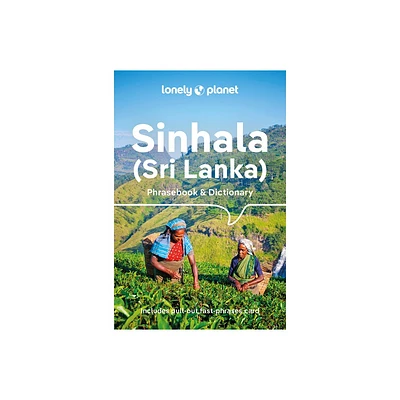Home
The Routledge Companion to Sinhala Fiction from Post-War Sri Lanka: Resistance and Reconfiguration
Loading Inventory...
Barnes and Noble
The Routledge Companion to Sinhala Fiction from Post-War Sri Lanka: Resistance and Reconfiguration
Current price: $280.00


Barnes and Noble
The Routledge Companion to Sinhala Fiction from Post-War Sri Lanka: Resistance and Reconfiguration
Current price: $280.00
Loading Inventory...
Size: Hardcover
*Product Information may vary - to confirm product availability, pricing, and additional information please contact Barnes and Noble
This companion presents a critical collection of Sinhala resistance literature from Sri Lanka. It includes translated short stories and excerpts from Sinhala novels, written after the civil war in the country. Featuring national award-winning writers, the selected texts share a common theme of resistance as the writers write against an exclusivist nationalism that was propagated through mass media and platforms of party politics in Sri Lanka during the war.
The volume addresses crucial issues such as the fate of civilians in war, the role of religion in Sri Lankan polity, media censorship, the experience of women in war, as well as the current education system and youth problems in present day Sri Lanka. It highlights an alternate discourse that runs among the ethnic Sinhala group and contributes to the overall movement towards peace and reconciliation among the different ethnic communities in Sri Lanka.
A unique addition to the growing oeuvre of translated Sinhala literature, the companion will be indispensable to students, scholars, and researchers of ethnic studies, war and peace studies, peace and conflict studies, literature, cultural studies, political sociology, and South Asian studies, particularly those interested in Sri Lankan literature.
The volume addresses crucial issues such as the fate of civilians in war, the role of religion in Sri Lankan polity, media censorship, the experience of women in war, as well as the current education system and youth problems in present day Sri Lanka. It highlights an alternate discourse that runs among the ethnic Sinhala group and contributes to the overall movement towards peace and reconciliation among the different ethnic communities in Sri Lanka.
A unique addition to the growing oeuvre of translated Sinhala literature, the companion will be indispensable to students, scholars, and researchers of ethnic studies, war and peace studies, peace and conflict studies, literature, cultural studies, political sociology, and South Asian studies, particularly those interested in Sri Lankan literature.














